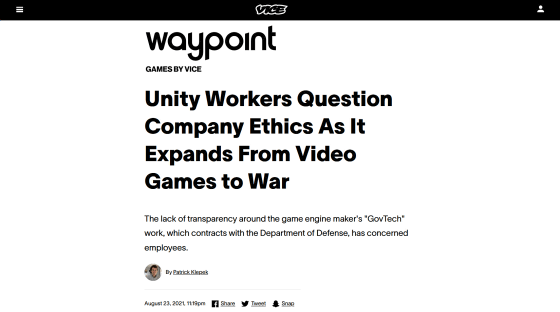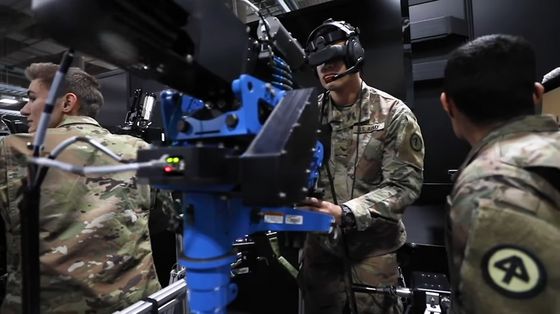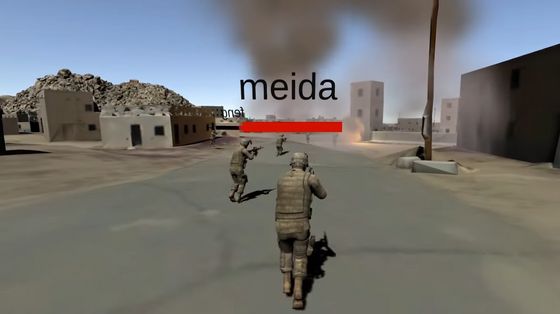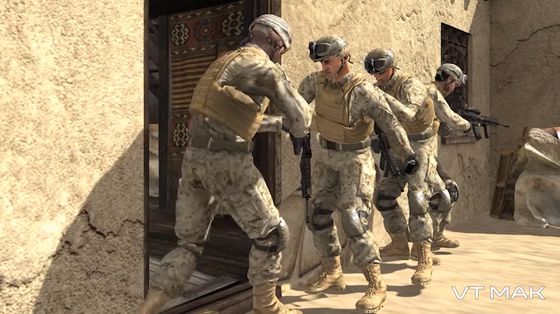Employees may have unintentionally developed technology to support the military, expressing concern over the Pentagon contract with Unity.

The game engine '
Unity Workers Question Company Ethics As It Expands From Video Games to War
https://www.vice.com/en/article/y3d4jy/unity-workers-question-company-ethics-as-it-expands-from-video-games-to-war

Unity's Military Deals Raise Ethics Concerns For Workers—Report
https://kotaku.com/report-unity-employees-not-thrilled-their-work-is-supp-1847541134
Unity was born in 2005 as a game development tool compatible with macOS, and at the time of writing the article, it has become the world's leading game engine used for the development of a wide range of games, from indie games to large-scale budget games. Developers can use Unity tools to create 3D environments and models, as well as script what happens in the game and create software that directs character behavior.
In recent years, Unity Technologies has expanded into fields other than games, such as the automobile industry , filmmaking , architecture and engineering. Such Unity Technologies has also signed a contract with the US Department of Defense, and inside Unity, 'There is a possibility that we will eventually be involved in the development of technology used by the military without the employees noticing.' There is a voice.
Former and current Unity employees who provided information to the American media Waypoint do not know exactly about military-related projects, and not all Unity Technologies employees know exactly about the projects they are working on. He pointed out that it is difficult to access. In addition, employees working on the development of AI tools that are not intended for a particular application will find it difficult to notice if the tools they develop are ultimately used in military projects.
According to the informant , it is the department called 'GovTech' within Unity Technologies that leads the contracts with the government and military departments. Not all of GovTech's work is completed internally, and employees in other departments may be involved in military-related projects without their knowledge. According to an internal document obtained by Waypoint, an employee was told that it was developing a 'random placement method for a government simulation project,' but the project was actually a 'virtual runway explosive' for the U.S. military. He later realized that it was a project related to 'Simulation of Pieces'.
'In-house training wasn't clear if there was concern that what we were doing would support the military,' one informant told Waypoint. 'People are stepping into Unity's military initiatives. At that time, it should be clearly notified. '

From the internal document 'GovTech Projects --Communication Protocol' obtained by Waypoint, we recognize that the work that GovTech is working on can lead to internal backlash and that we need to be cautious when talking about contracts. You can see that. 'We need to be sensitive to the diverse values and beliefs that people perceive about their involvement with government, especially the Pentagon,' the document said.
The document also directs managers to explain the project to employees to use the words 'government' or 'defense' instead of the word 'army', as well as managers explaining GovTech's projects. It also contains a list of 'to do' and 'to avoid'. The 'to do' list includes 'their work is not used in actual combat' and 'the project provides services and solutions to the Pentagon, not a single product. On the other hand, the 'things to avoid' list included 'talking about projects that use simulated or virtual weapons, or training projects that hurt someone.' ..

It's not hidden that Unity Technologies is working with the Department of Defense, and the official website mentions projects with government agencies and the US Air Force. According to Waypoint, Unity Technologies has signed a $ 428,000 contract with the U.S. Air Force in June 2020 for a 'family of advanced combat management systems with multi-domain operations,' for a total of 60 in 2020 alone. It is said that it has signed a contract with the Department of Defense that exceeds 10,000 dollars (about 66 million yen).
An example of using Unity by the Department of Defense is the simulation platform 'RIDE (Rapid Integration & Development Environment)' developed by the University of Southern California. RIDE also supports game engines other than Unity, but it seems that it was originally created in Unity.
Introduction to RIDE: Rapid Integration and Development Environment-YouTube
With RIDE, soldiers wear VR headsets ...

It is possible to perform various simulations in VR space.

RIDE is capable of maneuvering tanks, handling weapons, simulating military operations with multiple people, and also includes AI that enhances the behavior of simulated characters including enemy forces.

In addition, Unity Technologies held a lecture on 'Applied Research & Prototyping of Defense Applications' in March 2021 and invited RIDE developers as guests. 'Unity promises to be the real-time 3D platform of choice for the U.S. government,' said John Cunningham, Head of Government Solutions for Unity, in a speech. 'Our government team is working for government and defense. The focus is on identifying ways to leverage (new Unity) technology and developing new products as needed. '
When Waypoint contacted Unity Technologies about a series of concerns, it asked questions such as 'Have employees intentionally or unknowingly participated in the creation of war weapons?' 'How many military contracts have you ever fulfilled?' , Refused to answer due to confidentiality clauses, etc. On the other hand, he insisted that there was a 'thorough review process' within the company, which did not violate the 'Unity AI Ethics Principles ' and values announced in the 2018 blog.
In 2019, Unity Technologies announced the Sales Ethics Advisory Council (SEAC) in response to increased internal opposition to transactions with oil company Schlumberger , which traded in sanctioned countries such as Iran and Sudan. It has been formed. SEAC will scrutinize the new project that Unity Technologies will consider, and if there is a problem, it will convey the recommendation to the executives, and in fact it has refused the transaction according to the recommendation. However, Waypoint sources point out that SEAC also has problems, as it is unclear how SEAC actually operates and what criteria will be used to make decisions. ..
After Waypoint asked for comment, Unity Technologies CEO John Riccitiello told employees on Slack that Waypoint would report on the Pentagon and Unity Technologies contracts and more. In it, CEO Riccitiello explained that the deal was based on a thorough review process and did not violate Unity Technologies' principles and values. I promised to provide 'sex'. According to informants, internal reactions to this message have varied, supporting groups that are angry about working with the military, groups that are upset but refrain from making decisions until they read the article, and the US military. It is said that there are groups that show understanding in.
Related Posts:







